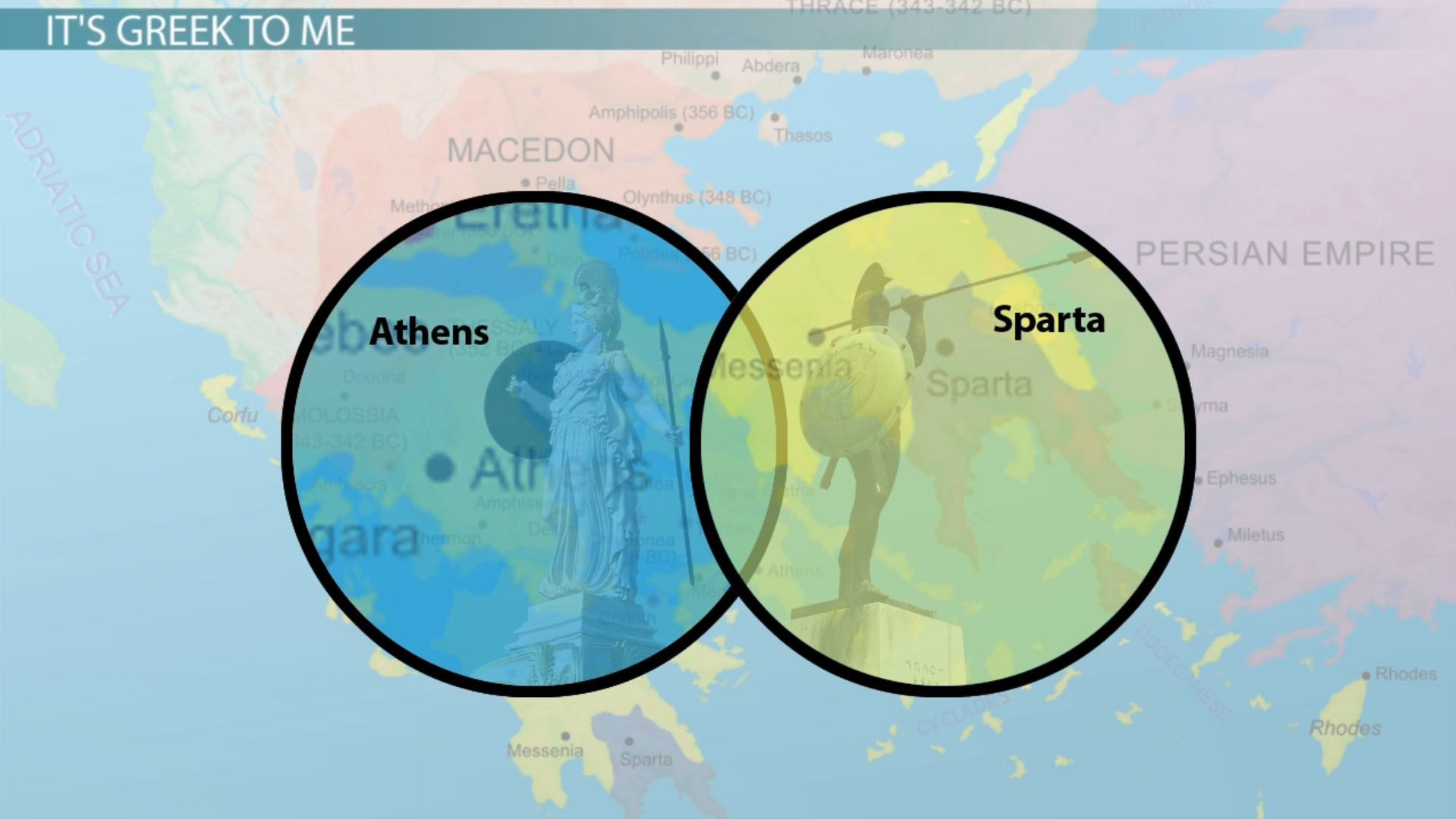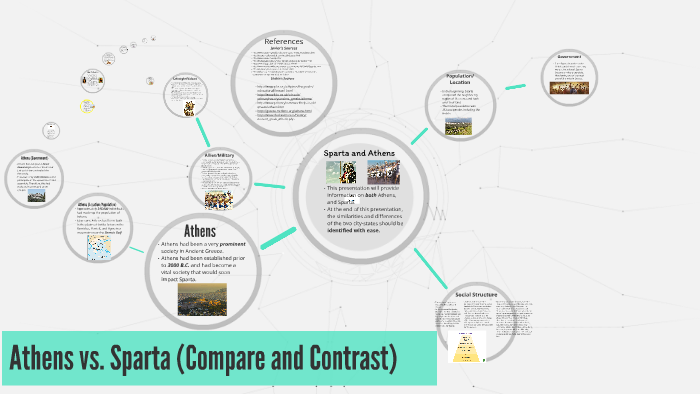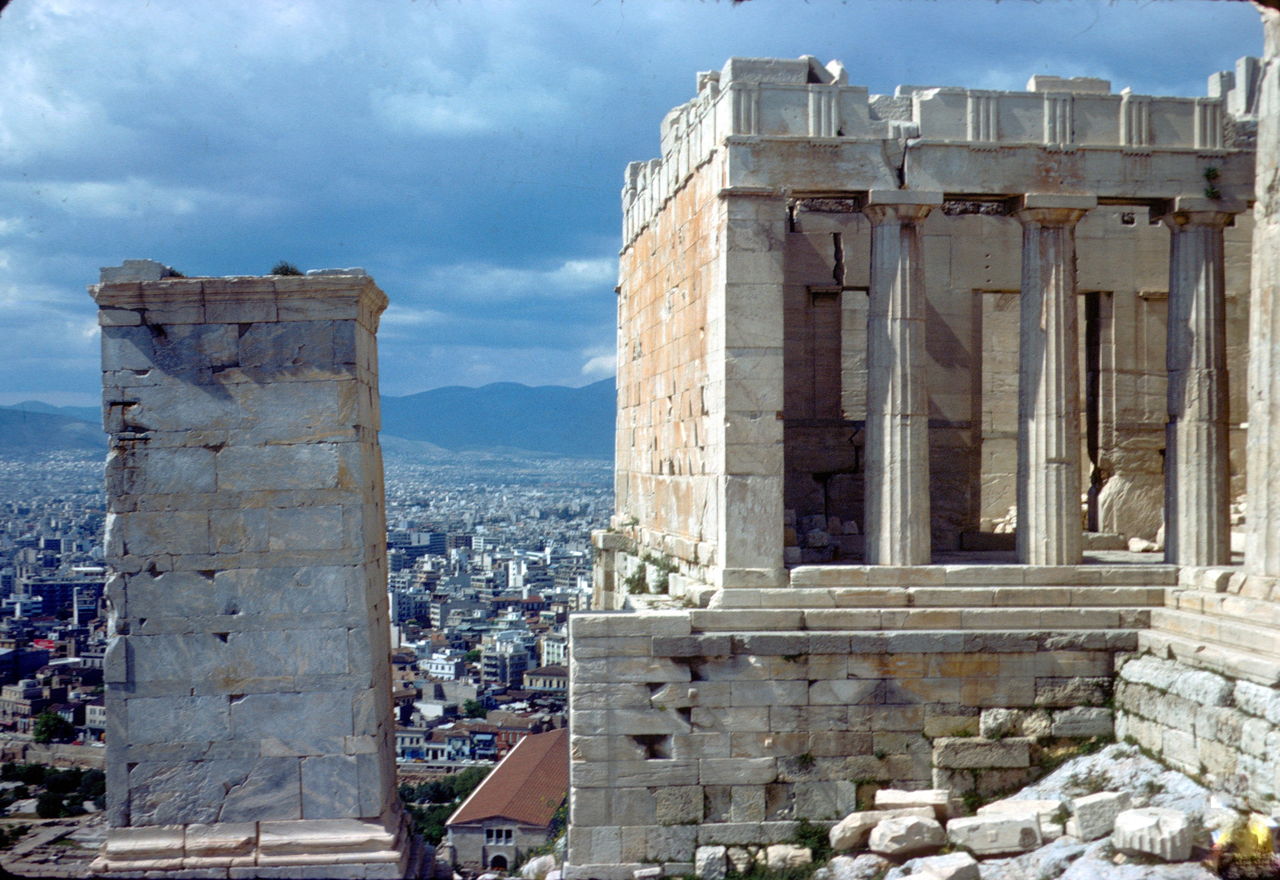Athens and Sparta were two of the most influential city-states in ancient Greece, and both have made significant contributions to the development of Western civilization. However, the two city-states were quite different in their political, social, and cultural systems, and this is reflected in the way they developed and evolved over time.
One of the main differences between Athens and Sparta was their approach to governance. Athens was a democracy, in which all citizens had the right to participate in the decision-making process through meetings and debates in the assembly. This system allowed for greater individual freedom and creativity, and it contributed to the flourishing of arts, literature, and science in Athens.
On the other hand, Sparta was a military oligarchy, in which a small group of nobles held most of the power and made all the important decisions. The main focus of Sparta was on building and maintaining a strong military, and this was reflected in their social and cultural systems as well. For example, education in Sparta focused almost entirely on physical training and discipline, and all citizens were required to serve in the military.
Another significant difference between the two city-states was their economic systems. Athens was a maritime power, with a strong trade network that allowed it to become wealthy and powerful. This wealth was reflected in the city's architecture and art, which are some of the most famous in the ancient world. Sparta, on the other hand, was more isolated and self-sufficient, relying on agriculture and trade within the region.
Cultural and social differences between Athens and Sparta were also significant. In Athens, the arts, literature, and philosophy flourished, and the city was home to some of the most famous thinkers and writers in history, such as Socrates, Plato, and Aristotle. In Sparta, cultural pursuits were discouraged, and the focus was on military training and discipline. Women in Sparta had more rights and freedoms than in other city-states, but they were still expected to support the military and bear children for the state.
In conclusion, Athens and Sparta were two of the most influential city-states in ancient Greece, but they differed significantly in their political, social, and cultural systems. Athens was a democracy with a strong focus on arts, literature, and science, while Sparta was a military oligarchy with a focus on physical training and discipline. Both city-states made significant contributions to the development of Western civilization, and their legacy can still be seen in the modern world.
Check Out This Informative Sparta Vs. Athens Comparison Chart

In summary, Sparta was able to adapt to the Athenians' naval style of fighting, and Sparta ultimately won the war. Athens though did not have a significant military power but had a commendable naval warship which led to defeating the What is Sparta? Sparta became a military stronghold by emphasizing only on expanding their power and gaining control over other kingdoms, while the Athenians grew in the fields of infrastructure and culture. The Peloponnesian War Comes to an End This brief period of military success brought on by Alcibiades gave the Athenians a glimmer of hope that they could defeat the Spartans, but this was really just an illusion. In ancient Sparta, strength, size, and fighting ability was valued above all else. Prominent societies in Greece was Athens and Sparta which had a majority of the influential aspects contained within their societies. When looking at the government, an When we focus on the lifestyle of the people, Spartans were well known for their military capacity. Instead, these women would focus on domestic skills like weaving and spinning.
resourcesforhistoryteachers / Athens and Sparta: A Comparison
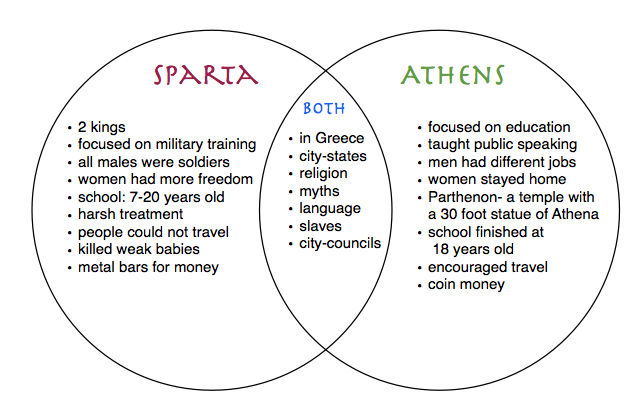
However, he was stopped at the Battle of Marathon 490 BCE , and he died before he was able to regroup his army and launch another attack. Athens, which is also the capital of modern Greece, is a vibrant tourist community with great ties to its past. The city-state was actually known as Lacedaemon, while the name Sparta itself referred to the main settlement on the banks of the Eurotas River in Laconia, in south-eastern Peloponnese. Essentially, women are nearly on the level of slaves in terms of social treatment. The attempted invasion of Sicily was a complete disaster for Athens. Looking at its ancient tradition, it has military prowess written all over it. To cite this article in an academic-style article or paper, use: Matthew Jones, "Athens vs.
Athens vs. Sparta Comparison Activity
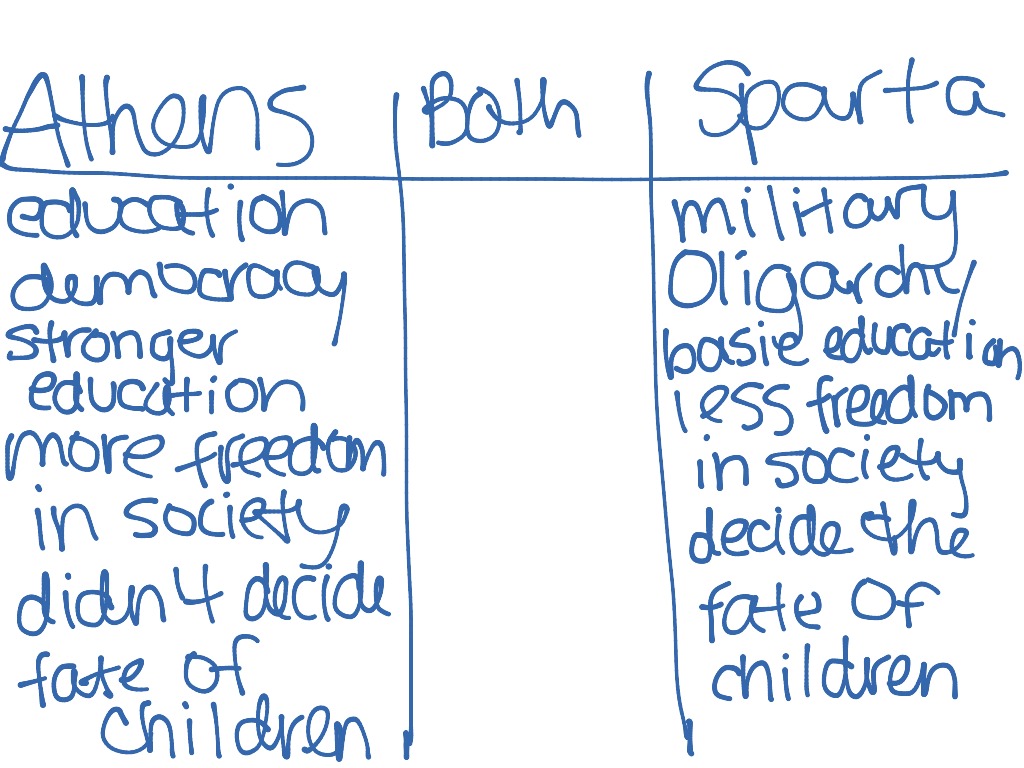
This was done mainly so that in times of war Sparta would still retain a leader if the other were to die in battle. Upon hearing this news, Sparta, along with Corinth, sent ships to help the Syracusans defend their city, a move that all but restarted the Peloponnesian War. Although they shared a common ancestry, ethnic differences, as well as economic interests, and an obsession with heroes and glory, meant that war was a common and welcomed occurrence in the ancient Greek world. The Spartan Strategy Because the Athenians had left Attica almost entirely undefended, and also because the Spartans knew they had a significant advantage in land battles, the Spartan strategy was to raid the land surrounding Athens so as to cut off the food supply to the city. They could own no property apart from the family. Sparta, on the other hand, was a prominent city-state in Greece that rose to become the dominant military land-power in the region.

